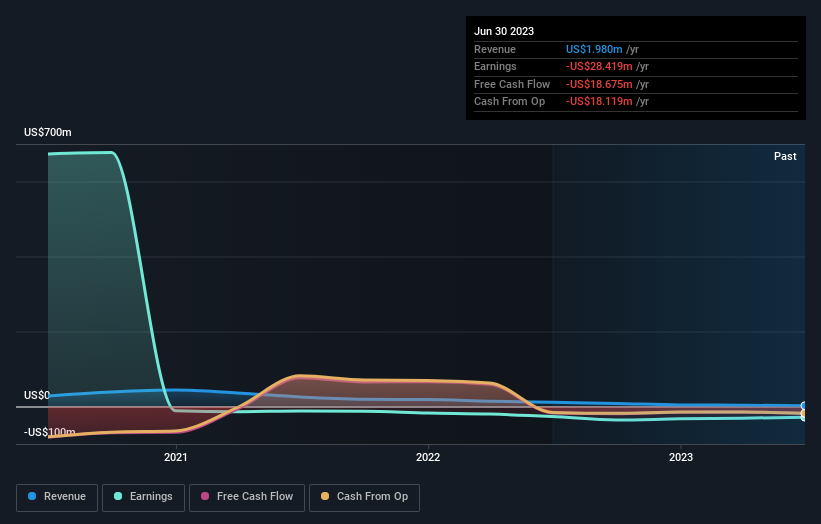Individual investors account for 50% of XBiotech Inc.'s (NASDAQ:XBIT) ownership, while insiders account for 35%
Key Insights
The considerable ownership by individual investors in XBiotech indicates that they collectively have a greater say in management and business strategy
The top 25 shareholders own 50% of the company
If you want to know who really controls XBiotech Inc. (NASDAQ:XBIT), then you'll have to look at the makeup of its share registry. And the group that holds the biggest piece of the pie are individual investors with 50% ownership. In other words, the group stands to gain the most (or lose the most) from their investment into the company.
And individual insiders on the other hand have a 35% ownership in the company. Large companies usually have institutions as shareholders, and we usually see insiders owning shares in smaller companies.
Let's take a closer look to see what the different types of shareholders can tell us about XBiotech.
Check out our latest analysis for XBiotech
What Does The Institutional Ownership Tell Us About XBiotech?
Institutional investors commonly compare their own returns to the returns of a commonly followed index. So they generally do consider buying larger companies that are included in the relevant benchmark index.
XBiotech already has institutions on the share registry. Indeed, they own a respectable stake in the company. This implies the analysts working for those institutions have looked at the stock and they like it. But just like anyone else, they could be wrong. If multiple institutions change their view on a stock at the same time, you could see the share price drop fast. It's therefore worth looking at XBiotech's earnings history below. Of course, the future is what really matters.
XBiotech is not owned by hedge funds. Our data shows that Thomas Gut is the largest shareholder with 13% of shares outstanding. With 13% and 8.7% of the shares outstanding respectively, John Simard and W. McKenzie are the second and third largest shareholders. Note that the second and third-largest shareholders are also Chief Executive Officer and Member of the Board of Directors, respectively, meaning that the company's top shareholders are insiders.
On studying our ownership data, we found that 25 of the top shareholders collectively own less than 50% of the share register, implying that no single individual has a majority interest.
While studying institutional ownership for a company can add value to your research, it is also a good practice to research analyst recommendations to get a deeper understand of a stock's expected performance. We're not picking up on any analyst coverage of the stock at the moment, so the company is unlikely to be widely held.
Insider Ownership Of XBiotech
The definition of an insider can differ slightly between different countries, but members of the board of directors always count. The company management answer to the board and the latter should represent the interests of shareholders. Notably, sometimes top-level managers are on the board themselves.
I generally consider insider ownership to be a good thing. However, on some occasions it makes it more difficult for other shareholders to hold the board accountable for decisions.
Our most recent data indicates that insiders own a reasonable proportion of XBiotech Inc.. Insiders own US$50m worth of shares in the US$144m company. This may suggest that the founders still own a lot of shares. You can click here to see if they have been buying or selling.
General Public Ownership
The general public-- including retail investors -- own 50% stake in the company, and hence can't easily be ignored. While this size of ownership may not be enough to sway a policy decision in their favour, they can still make a collective impact on company policies.
Next Steps:
It's always worth thinking about the different groups who own shares in a company. But to understand XBiotech better, we need to consider many other factors. Like risks, for instance. Every company has them, and we've spotted 2 warning signs for XBiotech (of which 1 makes us a bit uncomfortable!) you should know about.
If you would prefer check out another company -- one with potentially superior financials -- then do not miss this free list of interesting companies, backed by strong financial data.
NB: Figures in this article are calculated using data from the last twelve months, which refer to the 12-month period ending on the last date of the month the financial statement is dated. This may not be consistent with full year annual report figures.
Have feedback on this article? Concerned about the content? Get in touch with us directly. Alternatively, email editorial-team (at) simplywallst.com.
This article by Simply Wall St is general in nature. We provide commentary based on historical data and analyst forecasts only using an unbiased methodology and our articles are not intended to be financial advice. It does not constitute a recommendation to buy or sell any stock, and does not take account of your objectives, or your financial situation. We aim to bring you long-term focused analysis driven by fundamental data. Note that our analysis may not factor in the latest price-sensitive company announcements or qualitative material. Simply Wall St has no position in any stocks mentioned.


